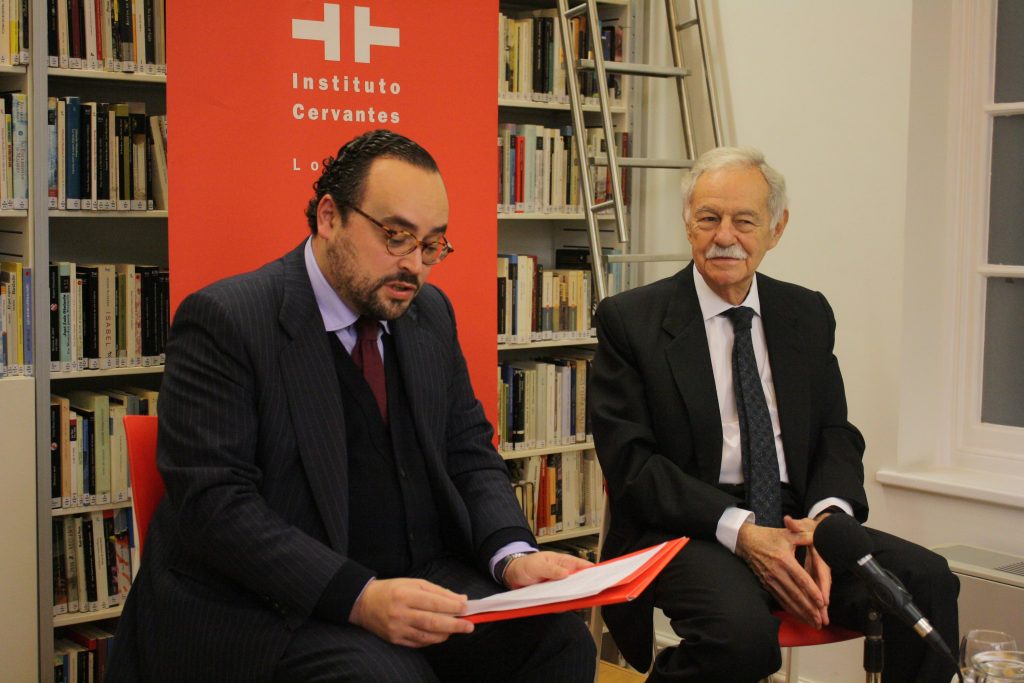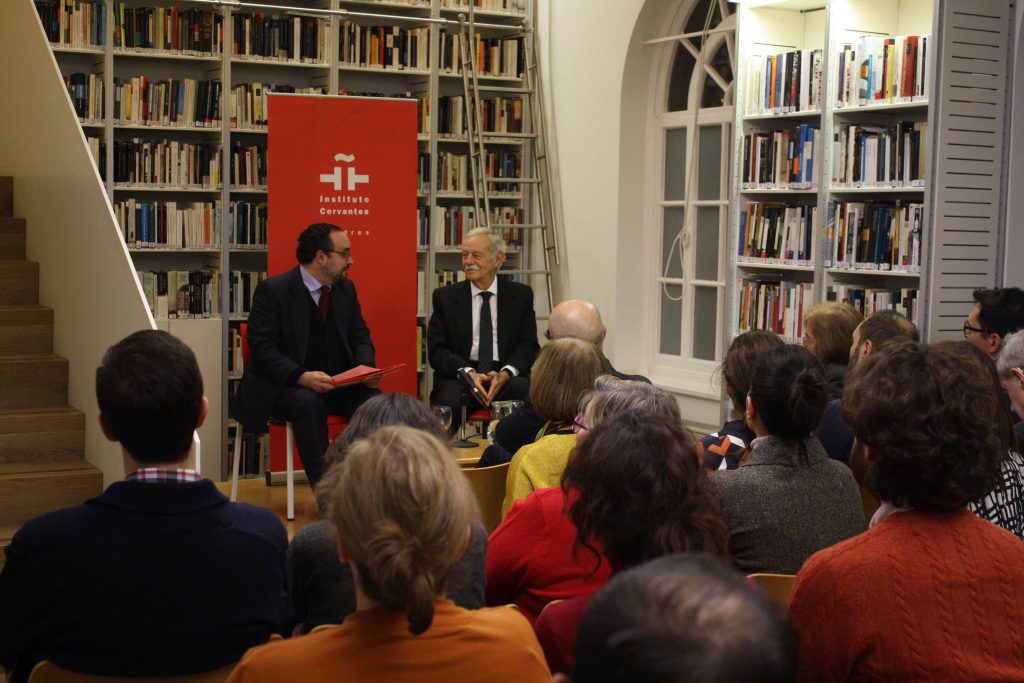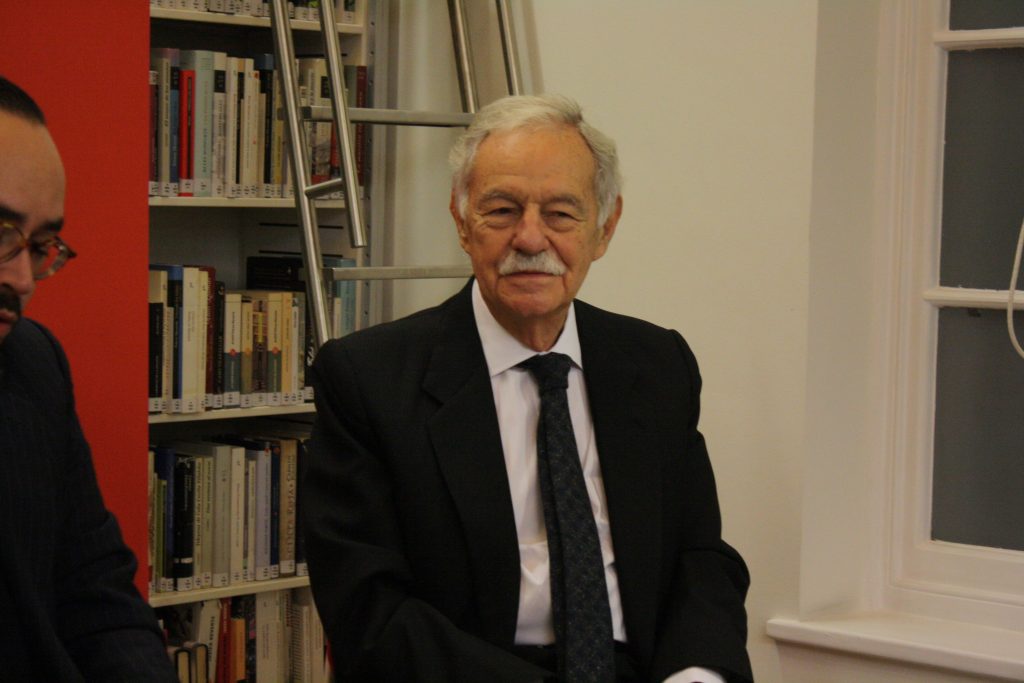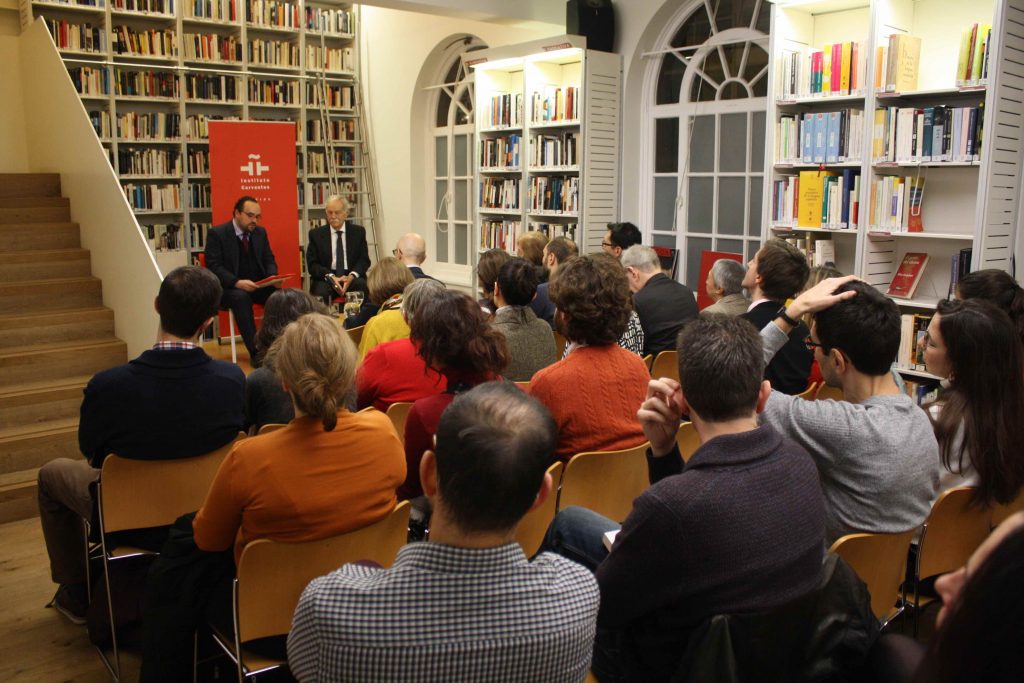Eduardo Mendoza highlights the influence of Baroja, youth reading and comics in his writing
José Pizarro is the next guest of the Blanco-White dialogues at Instituto Cervantes London

Spanish writer Eduardo Mendoza highlighted the influence of Baroja, youth reading and comics on his writing. Mendoza identified these influences during the second meeting of the Blanco-White Dialogues at the Instituto Cervantes London, in conversation with its director, Ignacio Peyró.
Peyró commented the library has “more books by Mendoza than the writer has in his own home”, highlighting that he is a “great writer with great readers.” Furthermore, Peyró praised the writer for being not only an extraordinary novelist but for managing to seduce critics throughout his 40-year career success.
Mendoza acknowledged that at Instituto Cervantes in London, he feels like at home. In addition to using its great library regularly, Mendoza was awarded the prestigious Cervantes Prize in 2017 at the London Centre, and the press conference was held at its facilities.

Inspiration from all the things you receive
The author, from Barcelona, pointed out that he is so attached to the act of writing that practically all stimulus from the world around him is immediately transformed involuntarily into literary material.
Mendoza pointed out the concerns common to all writers, including himself. He spoke of the nervousness of publishing your first book as a new writer and especially if it is an ambitious novel. He feels that writers all think the same way: “I like it so much, I can’t do it again, Now I can’t write anything anymore.” He believes, however, that in fact, the opposite is true. They’ve only just begun to be a writer, more things remain to be written.
“When I am finishing a book I start to get very nervous and I start to be in a hurry because I have already thought about the next book. On many occasions, what follows does not bear fruit but it is true that I have the impulse to continue writing. Sometimes I think I should stop, not because I feel like stopping, or because it would affect my physical and mental health, but instead it would affect readers and maybe my history. I still have not made a big mistake, small mistakes yes, I better retire now that I am at a suitable time with a race behind my back, but I will not do it,” Mendoza acknowledged.

Writing from the cradle
The acclaimed author of Sin noticias de Gurb joked that he was writing something from the crib. From a very young age, he adored storytelling. He now recognises the cruelty of his passion on his parents, joking that he would force them to read him stories for hours and hours every day.
Mendoza recollects that he learned to read early. Whilst still in kindergarten as a young child, there was very little play or unstructured learning; instead, every day, they would sit and learn the alphabet.
Profitable and joyful reading were hard for him, which is why he asked his parents to read to him. Even as a child, he hoped that one day he himself would be able to write such beautiful stories. And so, he immediately began to write, never imagining that someone would read it, that it could be published or that he could become an author.
Youth Reading and Comics
Mendoza acknowledged that you learn to write simply by reading. When he first started, he embarked with enthusiasm but was mostly copying and imitating other works. There was a moment in which he discovered the influences of youth reading, with the novels of Stevenson or Walter Scott. He also found great inspiration in the great era of Spanish comics with characters that he defines as very close to him. Through these, he has lived and continues living, and with a very florid way of speaking, that replicated political and courteous rhetoric.
The author of La ciudad de los prodigios exalted among the great writers who dazzled him, naming specifically Franz Kafka, James Joyce, and then he found Pío Baroja. Baroja was the person who was at a fair distance from Mendoza, with a style that seemed “magnificent, being able to walk by his side and develop his own voice.”

José Pizarro, next guest of the Blanco-White dialogues
The next guest of the Blanco-White Dialogues will be Spanish chef José Pizarro, in an event that will take place on Wednesday, January 22, 2020 at 7:00 p.m. Prior to Mendoza, the dialogues at Instituto Cervantes London had the pleasure of talking to an exceptional guest: the dancer and director of the English National Ballet, Tamara Rojo, on October 29th.
The Blanco-White Dialogues bring great figures of Spanish culture and relations between Britain and Spain to the British public. In a relaxed and relaxed environment, prone to confidences, the guests have an in-depth conversation and open to the public.


